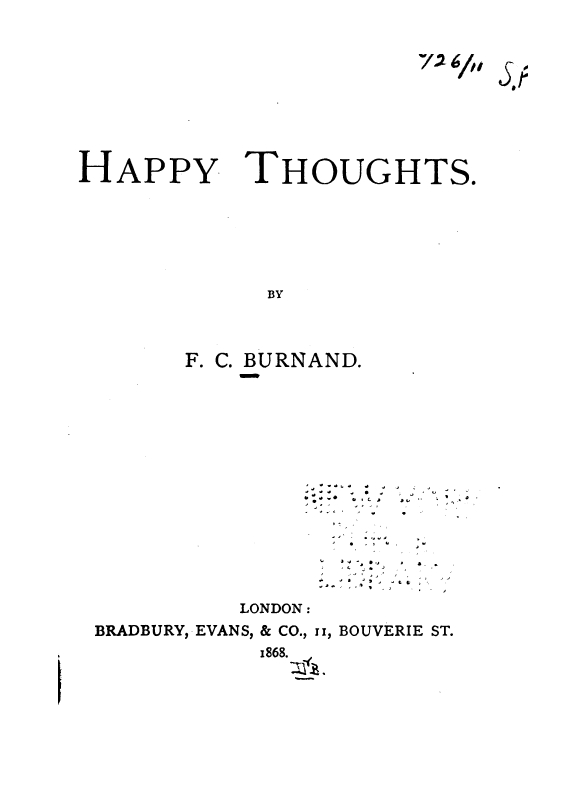§ 4. Happy Thoughts
The expression “happy thought(s)” occurs twice in Lolita.
The first time, in the plural, early in the book in the course of Humbert’s brief historical discursus defending his “being moved to distraction by girl-children:”
Hugh Broughton, a writer of controversy in the reign of James the First, has proved that Rahab was a harlot at ten years of age. This is all very interesting, and I daresay you see me already frothing at the mouth in a fit; but no, I am not; I am just winking happy thoughts into a little tiddle cup. (Lolita I, § 5, 21).The second time, in the singular, in the book’s penultimate chapter after Humbert has entered Pavor Manor in pursuit of Quilty:
A happy thought struck me. If and when master returned from his constitutional in the woods, or emerged from some secret lair, it might be wise for an unsteady gunman with a long job before him to prevent his playmate from locking himself up in a room. Consequently, for at least five minutes I went about — lucidly insane, crazily calm, an enchanted and very tight hunter — turning whatever keys in whatever locks there were and pocketing them with my free left hand. (Lolita II, § 35, 296).In the preface to his Happy Thoughts, Francis Cowley Burnand explains that one must not “expect to find any new Pensées among these pages: assuredly you will be disappointed. I do not put them down as Deep Thoughts; nor Night Thoughts. They are, assuming such situations as our Jotter finds himself placed in, just such thoughts as would happily occur to ninety-nine out of a hundred of us when acting upon the impulse of the moment” (Burnand 1868: ix). “Happy thoughts,” Burnand insists, “leave much to the reader’s imagination, and everything else to his goodwill” (x). “Happy Thoughts,” notes an article on Burnand’s retirement from Punch in the February 16, 1906, issue of The Times Literary Supplement (p. 53), “is Sir Francis Burnand’s magnum opus. In Happy Thoughts the introspective methods of Amiel are turned to comic ends; searching and pitiless self-analysis are applied to trivial daily life. As Mackenzie dissected the Man of Sentiment, so Sir Francis Burnand dissected and laid bare the sensitive wag. Happy Thoughts is the epic of minor embarrassments.” Burnand’s series of “happy thoughts” continues with More Happy Thoughts, About Buying a Horse (Occasional Happy Thoughts, I), and Round About My Garden (Occasional Happy Thoughts, II). Although further resonances between
Happy Thought. — By the way, to assume everyone to be something merely for the purposes of conversation. Must lead to discussion.For example, assume a man to be a soldier; talk to him of the latest invention in breech-loaders (if you can — I can't), manœuvres, campaigns, the exemplary conduct of the Light Cavalry in Abyssinia (if you know anything about it — I don't), and so forth. (About Buying a Horse, ch. II).

